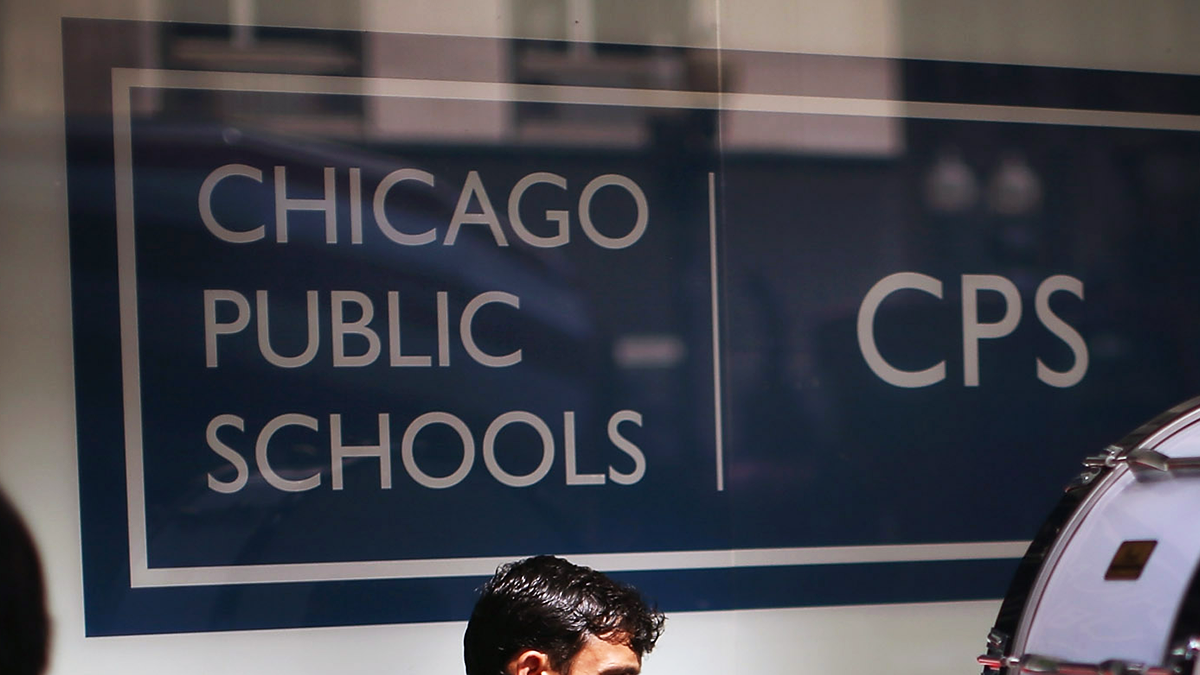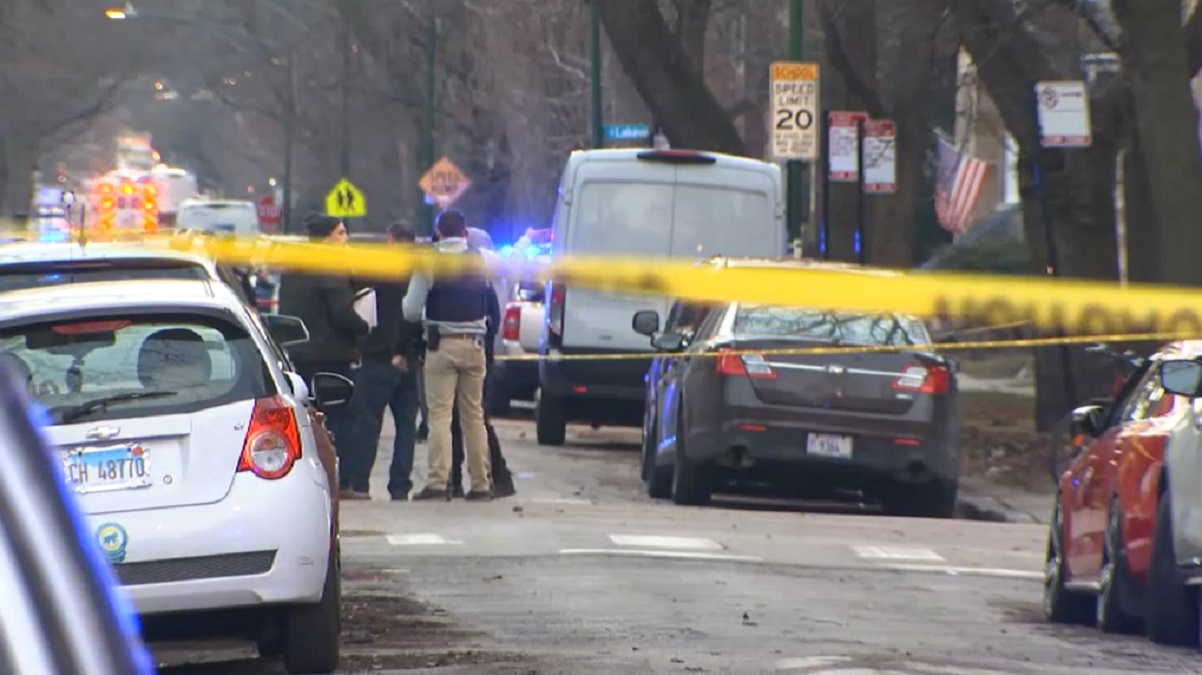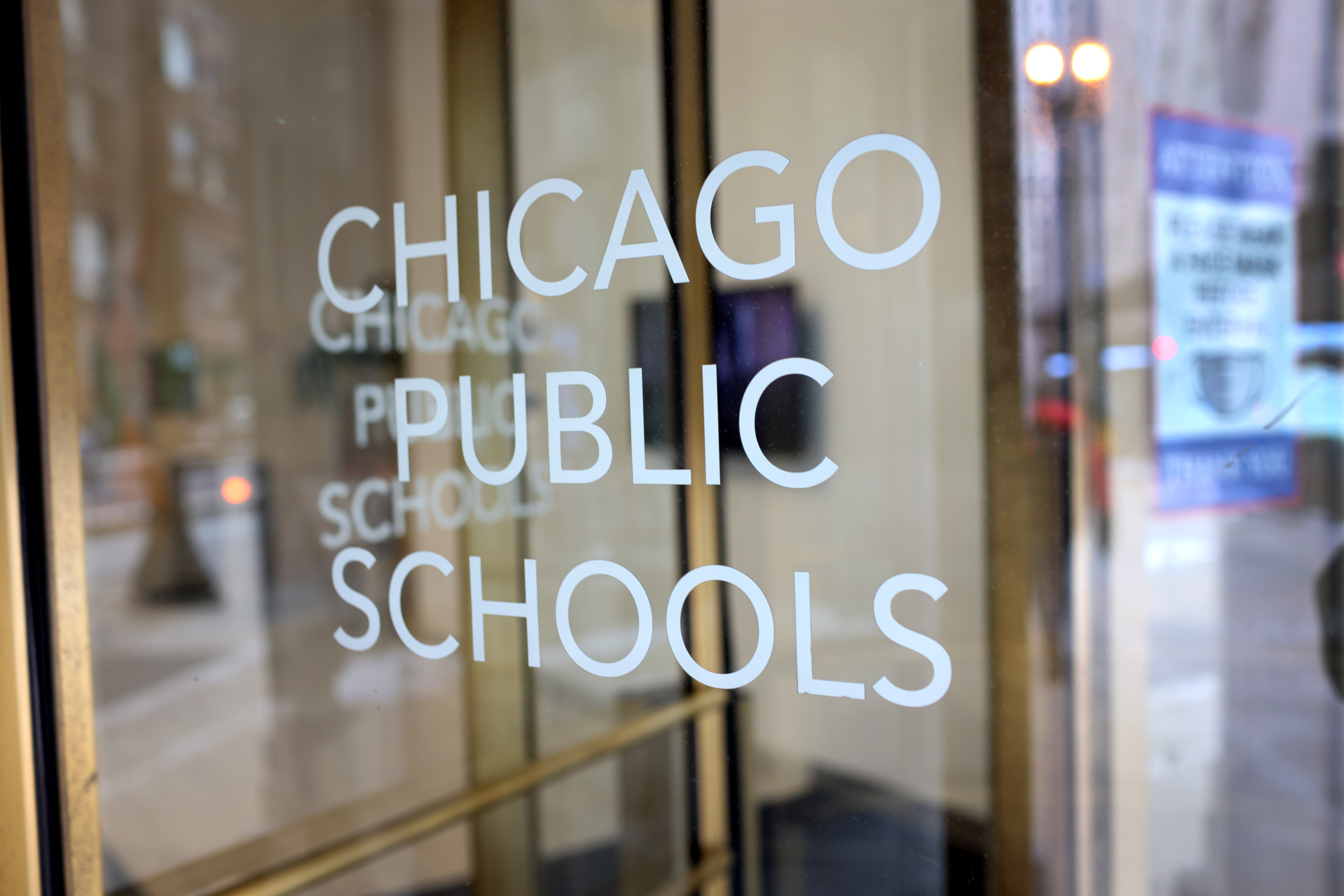Newly obtained internal briefings reveal the pushback the district and Board received from aldermen and other lawmakers in closed door meetings to discuss the plan, which would take what was once a Local School Council decision and make it a districtwide policy.
The Board of Education published Tuesday the resolution it will vote on later this week to “create a comprehensive whole school safety policy” throughout CPS. The resolution notes the Board previously adopted a resolution in August 2020 directing CPS come up with a plan to phase out School Resource Officers, or SROs. The resolution points to 14 schools that have voted to remove 28 SROs in the more than three years since.
Thirty-nine of the district’s 634 schools have voted to retain a total of 57 full-time SROs. Officers have been inside CPS schools since 1991. The new resolution directs the CPS CEO to develop a new, more holistic districtwide policy that “must make explicit that the use of SROs within District schools will end by the start of the 2024-2025 school year.”
Feeling out of the loop? We'll catch you up on the Chicago news you need to know. Sign up for the weekly Chicago Catch-Up newsletter here.
Through a Freedom of Information Act request, NBC 5 Investigates obtained video recordings of five briefings Board members and CPS leadership held in late January with Chicago aldermen as well as state and federal elected officials to discuss the change. Those briefings, at times, grew contentious.
“I do want to say that I wholeheartedly am disappointed in your decision to remove the police officers from our Chicago Public Schools.” 29th Ward Ald. Chris Taliaferro told district and Board officials. “I think a lot of our principals and our LSCs made it very clear that some of our schools do, in fact, require and need police officers to be present. I think your decision places our students at more risk and harm than ever before.”
“Your holistic approach, although I applaud it, needs to be studied a little more before we remove them completely or before we remove them at all,” Taliaferro continued, adding, “I would ask you to reconsider and I know for different reasons, many of you are supporting this. But many of you don't have children in these schools, especially in inner city schools, especially on the West Side and South Side of Chicago. That's like me saying it's okay to put our kids at risk because my kid isn't there.”
Ald. Matt O’Shea said two SROs have made a difference at Morgan Park High School in his 19th Ward.
“They’re approachable for the students who might have an issue, who might be in a crisis; they’re there to protect the students and faculty if God forbid something should happen,” O’Shea said.
Those who want the SROs removed from schools have argued that their presence promotes a prison-like environment. The resolution highlights disparities in discipline: disproportionately higher suspension rates and calls to police involving African-American students and students with disabilities, when compared to other demographics.
If the resolution passes Thursday, it calls for CPS to present the new policy for the Board of Education’s approval by June 27, 2024, to take effect before the new school year. Mayor Brandon Johnson has made eliminating the use of SROs a top priority – just months before the first members of Chicago’s newly elected school board are phased in.
Also central to the briefings was the Board’s move to pass a new five-year strategic plan for the district, which includes, among other initiatives, a shift away from selective enrollment high schools. Aldermen were critical of the timing of that effort as well, its passage slated for the summer - again, before the newly elected Board members take office.
“If we look at it as glass half full, it is: you go out and do this engagement and create a strategy that you think is the best thing for the next four years. But if you're looking at it glass half empty, it might be saying you're creating a strategy that'll tie the hands of the first elected school board if they have to be limited to that, right?” asked 39th Ward Ald. Samantha Nugent.
“Somebody could argue, right, that this would bind or hold an elected school board to decisions made right before they were, they came to be in office,” Nugent said.
Some have raised other concerns about timing of the unilateral decision to remove SROs – after three fatal shootings outside three different Chicago high schools in recent weeks.
"I am definitely not in support of removing the ability for Local School Councils to make the decision on their school resource officers. Just yesterday we had a melee over at Westinghouse, and without the support of the police department on scene, that situation could have been exponentially worse," 28th Ward Ald. Jason Ervin said.
CPS said schools can use the funding that would be spent on SROs for what they called “alternate safety strategies,” like hiring counselors, or positions like “restorative justice coordinator” or “climate and culture coordinator.” CPS said schools that have opted to remove their SROs have already used $3.9 million in reinvestment funds to date.
"We are living in some fairly challenged communities and while I understand the need to bring additional resources, I don’t think it should be either/or,” Ervin said. “I think we should be able to do both and I’m hopeful that the resources, the reallocations that you all are making to the neighborhood schools will help make them not only safe environments, but good environments for learning because again, we have some very challenging situations."
The resolution notes, and CPS’ Chief of Safety and Security Jadine Chou highlighted in the briefings: the district will continue to partner with Chicago police.
“When we say we’re phasing out the SRO program, it does not mean we are phasing out a relationship with the Chicago Police Department,” Chou said.
Still, some took issue with taking the decision away from the schools themselves.
“If the principal and LSC says it, I have no problem with it, but for the CPS Board to arbitrarily say we’re going to take them out without consulting with the aldermen, the principal, I think it’s a terrible idea,” 38th Ward Ald. Nick Sposato.
When asked about the comments made by aldermen in the briefings, CPS said the matter has been under review for years.
"In partnership with the Mayor's Office, the Chicago Board of Education has been reviewing the District's approach to whole school safety," CPS' statement reads.
"The resolution calls for the District to build on work that has been undertaken over the past several years and promises to elevate the policies, practices and resources that support the physical, emotional, and relational safety of all staff and students in our schools." the statement continued. "We expect we will expand on some of the current school-level work, including wrap-around supports, restorative justice, healing-centered practices, reengagement strategies, and facility needs."




